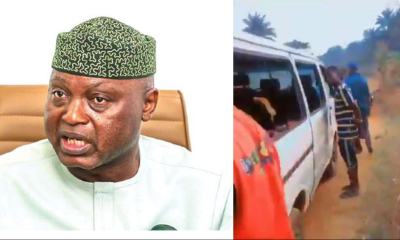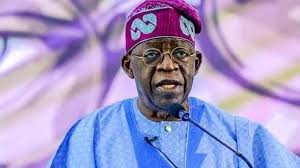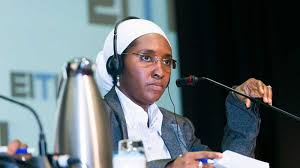OPINION
Tackling the Danger of a Single Story by Kayode Fayemi

An article on Wednesday, 13 August 2025, entitled “Sorting Nigeria Out” by Mr Lekan Sote, a columnist with the Punch newspaper, triggered this article from me. Before him, Senator Babafemi Ojudu wrote a critique of what was purportedly attributed to me on the same issue last week, and even earlier, several social media posts had been written amplifying the same narrative. And it’s all about a purported statement from me claiming that opposition to President Goodluck Jonathan’s removal of fuel subsidy in 2012 was all politics or something to that effect. And I must thank my friend, Joseph Adeyeye, Punch MD, for suggesting I write the article.
Although I have contextualised the narrative many times, I choose to believe that these recent critique stem from a place of genuine ignorance of my earlier rebuttals, and not malice. Even so, it highlights once again what Chimamanda Ngozi Adichie once referred to as the danger of a single story, which prevents people from a more complex, nuanced view of a situation and promotes assumptions, conclusions and narratives that may be incomplete, thus leading to misunderstanding and misrepresentation. It also exemplifies why context matters and why we must exercise restraint in rushing to judgment about any issue in this social media age.
Most people who took a negative view of what was purportedly said based their position on a one-minute doctored clip circulated on social media from a 45-minute keynote lecture. This distortion of my position is why social media is dangerous. This is what happened. I was the keynote speaker at the 60th birthday event of a good friend of mine and the foundation National Secretary of the Alliance for Democracy, Udenta Udenta, on Sept. 5 2023. President Goodluck Jonathan chaired the event.
The topic of my lecture was “Making Nigeria Work”, and my central thesis in the lecture was that we needed alternative politics driven by a collective agenda embracing all critical stakeholders rather than political alternatives that alternate between Party A or B, which still leaves us with a zero-sum game or a winner-takes-all scenario and choiceless electoralism.
To illustrate the point, I then referred to President Tinubu’s decision on fuel subsidy and criticised other parties for not supporting the President even after they all committed to subsidy removal during the campaign. In my off-the-cuff remarks, I said it seemed the other parties were paying President Tinubu and APC back in their own coin since Tinubu and our party at the time, the Action Congress of Nigeria (ACN), opposed President Jonathan when he took a similar decision in 2012. And I said that is politics as we play it in Nigeria, and then apologised to President Jonathan, who was seated in the audience, for what happened, whilst pleading that the other parties must not resort to the same tactics. It is possible for people who were not in the audience when I spoke or listened to the full speech to reach the conclusions reached by Mr Sote and Senator Ojudu, but that would be a definite misrepresentation of my very well-articulated position.
Now, for context and clarity. I was a member of the Nigeria Governors’ Forum (NGF), which championed the removal of subsidy under President Jonathan in 2012 on the basis that it was corruption-laden and that the expected savings could help address social security pressures in the country. Having taken this position at the Governors Forum, our own party, ACN, which was in control of six states in South-West Nigeria and Edo, took a different view by opposing subsidy removal on petroleum products.
In the heat of the moment and given the pressure from labour and civil society with which we were mostly associated as a party, we felt the need to harmonise the party position with the ACN Governors’ divergent position. We urgently convened a meeting hosted by Governor Babatunde Fashola in Marina, Lagos, on January 8, 2012 and aligned our position with the party, contrary to our earlier collective position in the Nigeria Governors’ Forum.
This was the reason why I apologised to President Jonathan and explained that our ambivalent position was driven more by politics, not objective facts. But then, we were products of our political party. While we took a view at variance with our party position based on considered facts available to us as state governors, adopting a populist stance endeared our party to the voting public, whom we were courting at a time our merger talks was in top gear with other political parties, that reversal of our position would appear opportunistic and self serving. What we did not tell the public at the time was that our party took that position at the time without reference to the Governors.
Although my party, the ACN, opposed the removal of the petrol subsidy at the time, Governor Adams Oshiomhole and I individually expressed support for its removal during that period due to our belief that it was in the best interest of the country. This remained my position even as Chairman of the Nigeria Governors Forum later, and I spent my entire tenure leading my colleagues to fight for subsidy removal until President Buhari saw our argument and eventually accepted our position. We, however, also spent time developing comprehensive mitigating steps, working with organised labour, the private sector, NNPC and the National Economic Council to cushion the effect of any such removal on the vulnerable segments of the population.
With President Tinubu’s action, our position in support of subsidy removal as Governors has been vindicated by the financial benefits that had accrued to sub nationals in the past two years in terms of additional resources that purposeful state governments had been able to apply to ameliorating the living conditions of the citizens, even if this has not been evenly and consistently beneficial to the people. In comparison to the current benefits, NNPC did not remit a single kobo to the Federation account throughout my tenure as Chairman of the Governors Forum on the pretext that what was due was being used to fund subsidy.
This was the context of apologizing to President Jonathan and praising President Tinubu’s decision whilst calling on the other parties to embrace the position, having promised the same thing during the campaign and not pay the President and his party back in their own coin. My lecture is available online, but I guess it is far easier for mischief-makers to take a snippet of what I said and ignore the entire lecture.
My view and focus in the lecture, however, stands to be corrected. Whilst politics is a marketplace of ideas and contentions, we must embrace alternative politics in which all parties should rally around good ideas and policies of government, regardless of the policy’s provenance. Equally, as a divided society, we need to move away from winner-takes-all, majoritarian first-past-the-post electoral systems and embrace proportional representation that gives appropriate weight to all votes cast in an election. I hope this article provides a more nuanced and comprehensive view of my position rather than the sensational soundbites the lecture had been subjected to.
Dr Fayemi is the immediate past Governor of Ekiti State and former Chairman of the Nigeria Governors’ Forum (NGF)
-
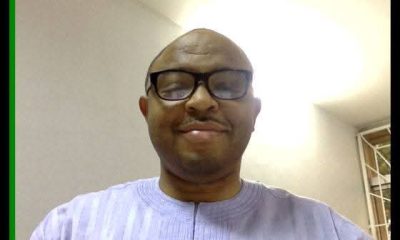
 News21 hours ago
News21 hours agoTinubu Picks Rotimi Pedro as New NTA Director-General
-

 Crime1 day ago
Crime1 day agoPolice nab two suspected cultists in Lagos, recover pistol
-

 Sports1 day ago
Sports1 day agoCHAN 2024: Fans slam Chelle over Super Eagles’ struggles
-
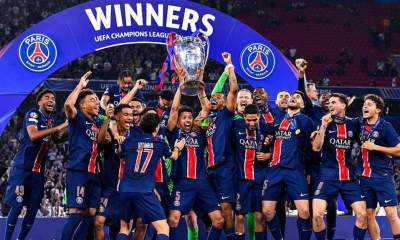
 AFRICA FOCUS1 day ago
AFRICA FOCUS1 day agoHow PSG Beat Tottenham on Penalties After Late Fightback To Win First UEFA Super Cup

